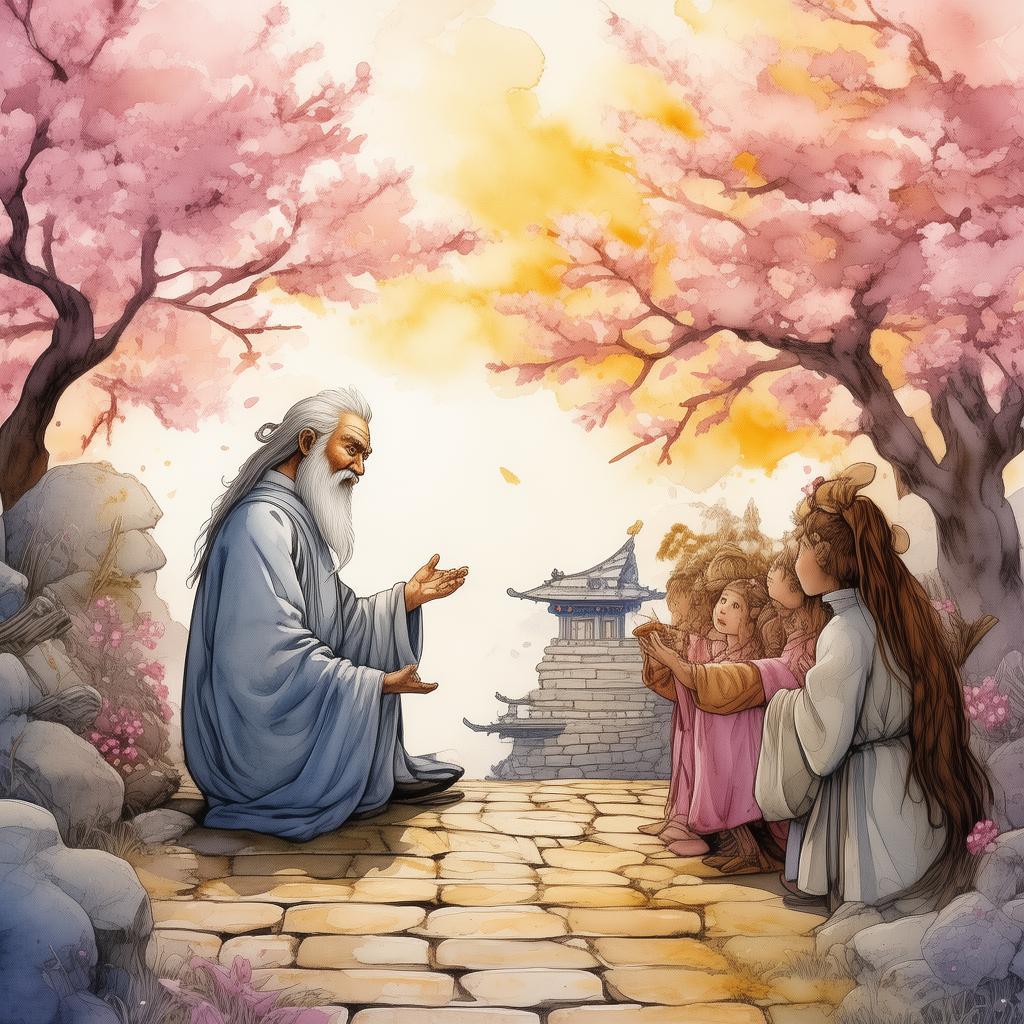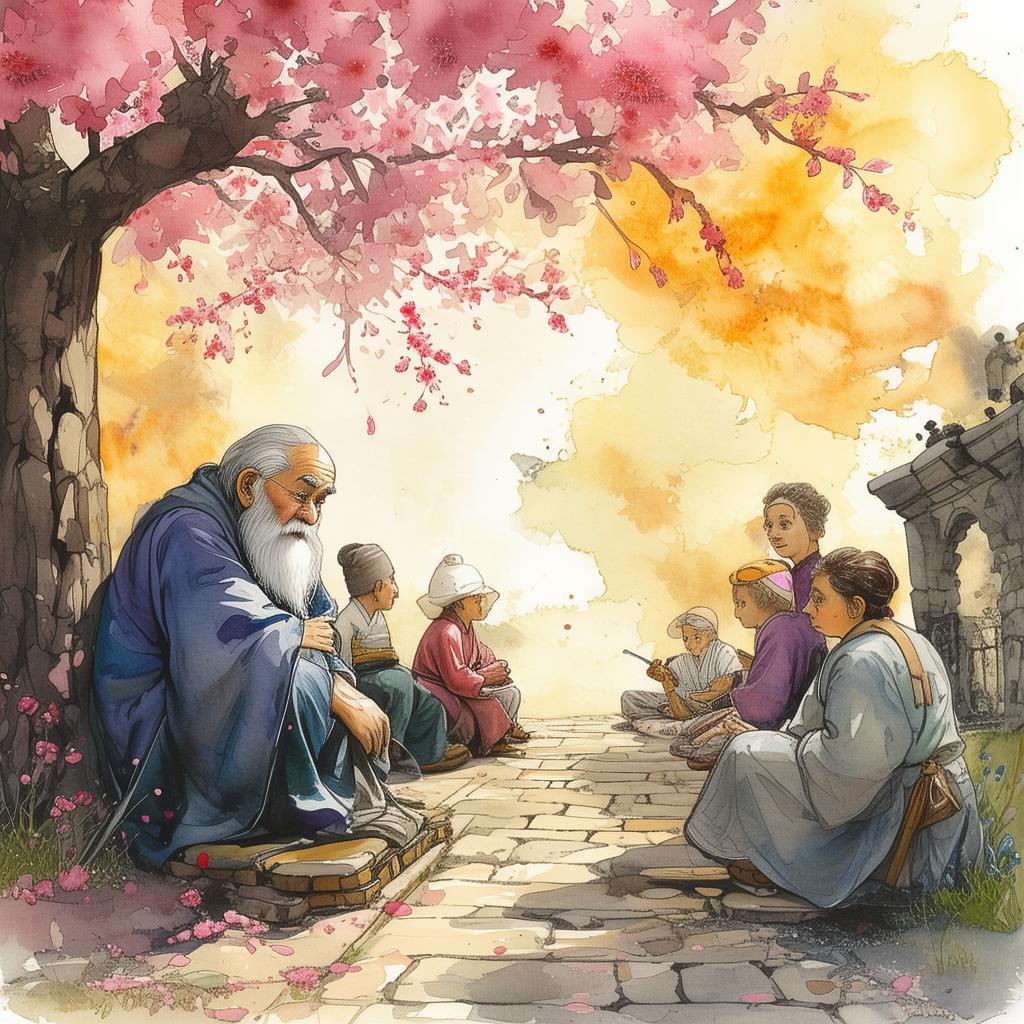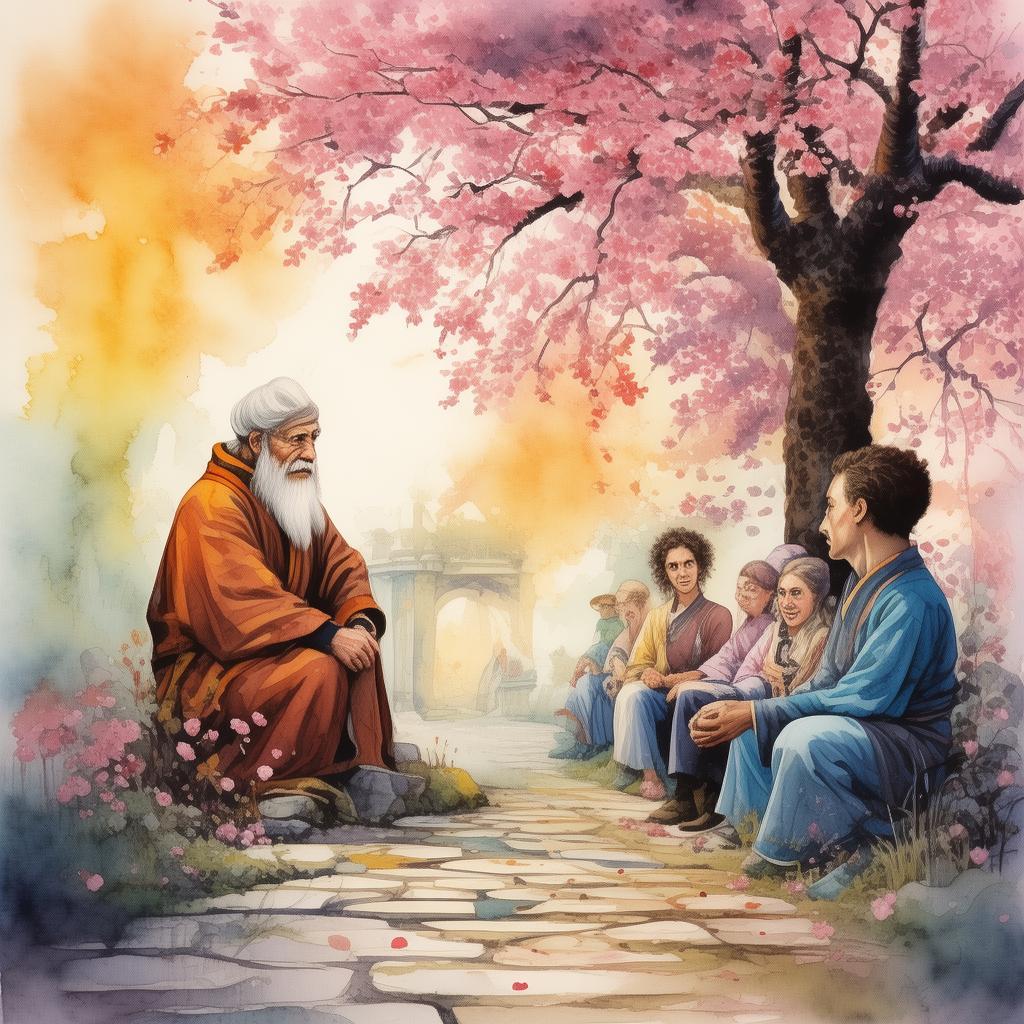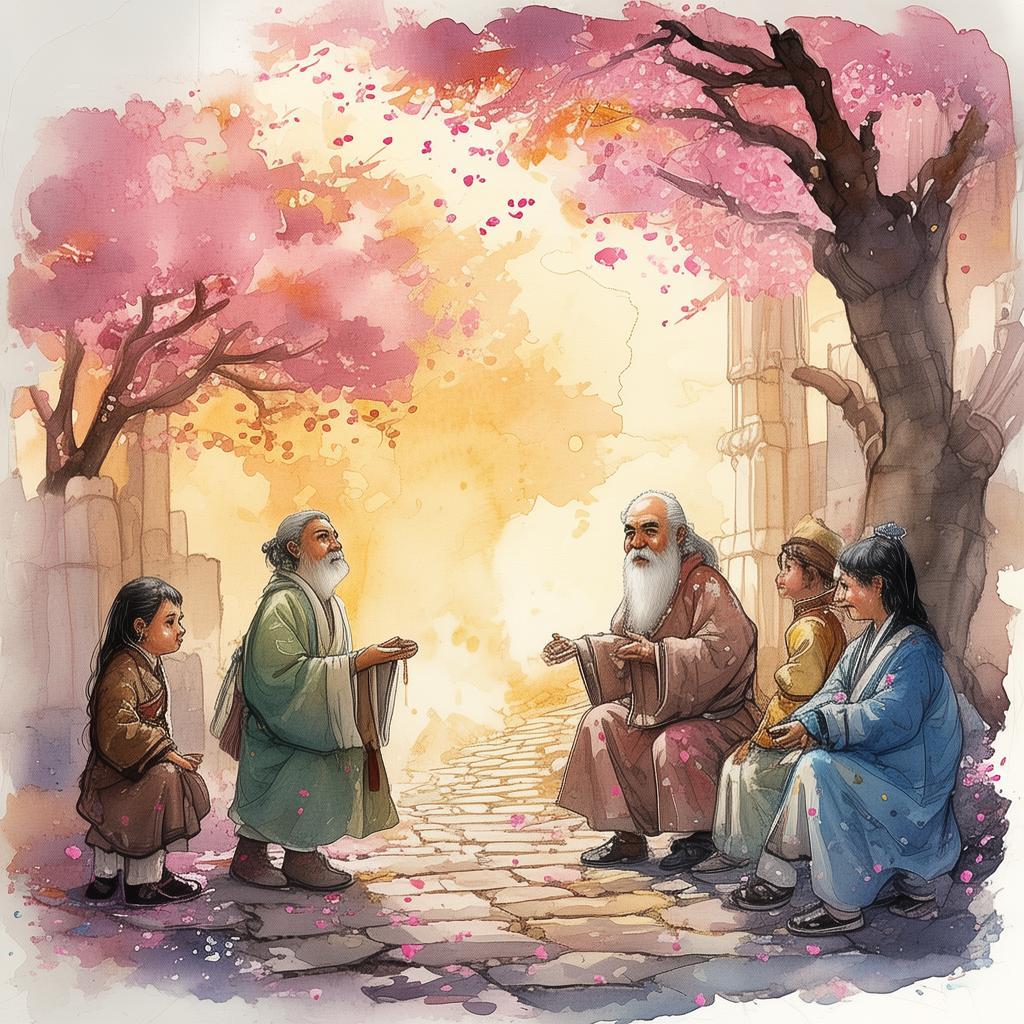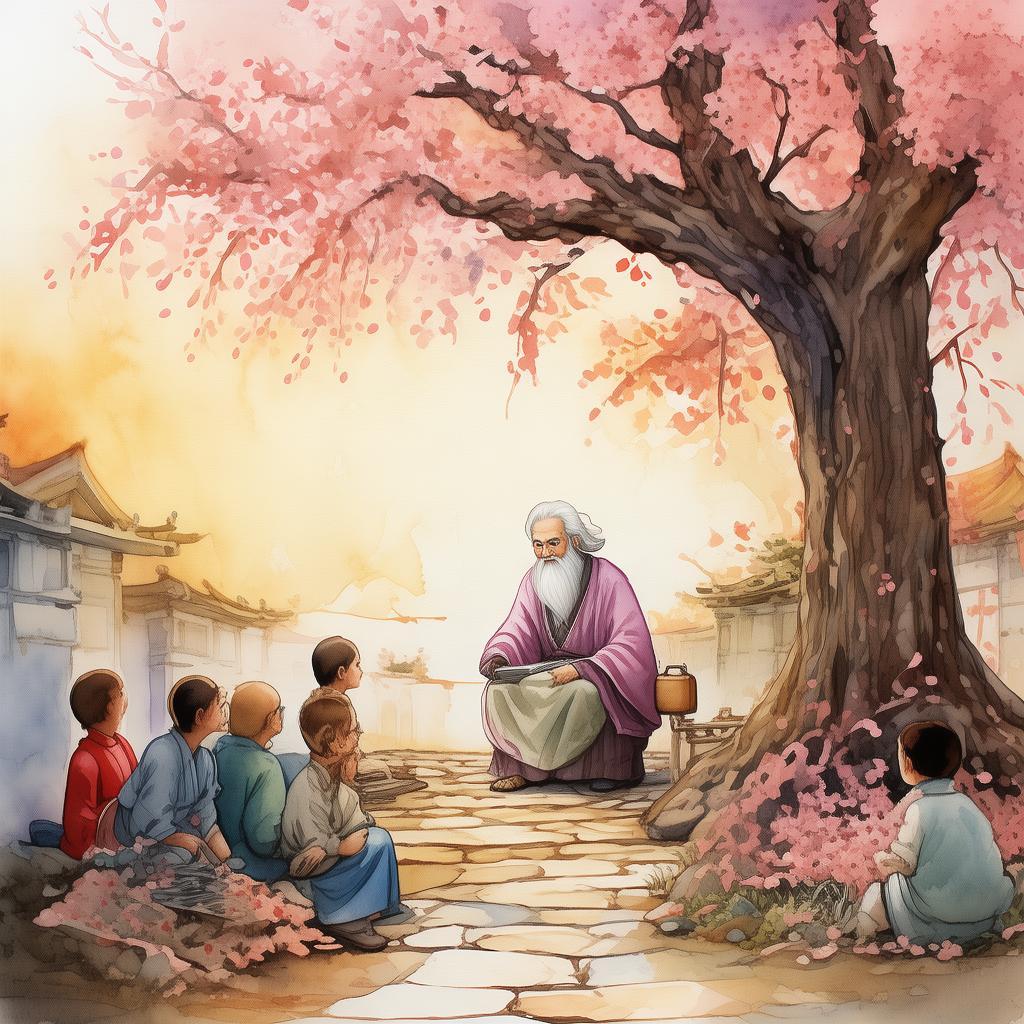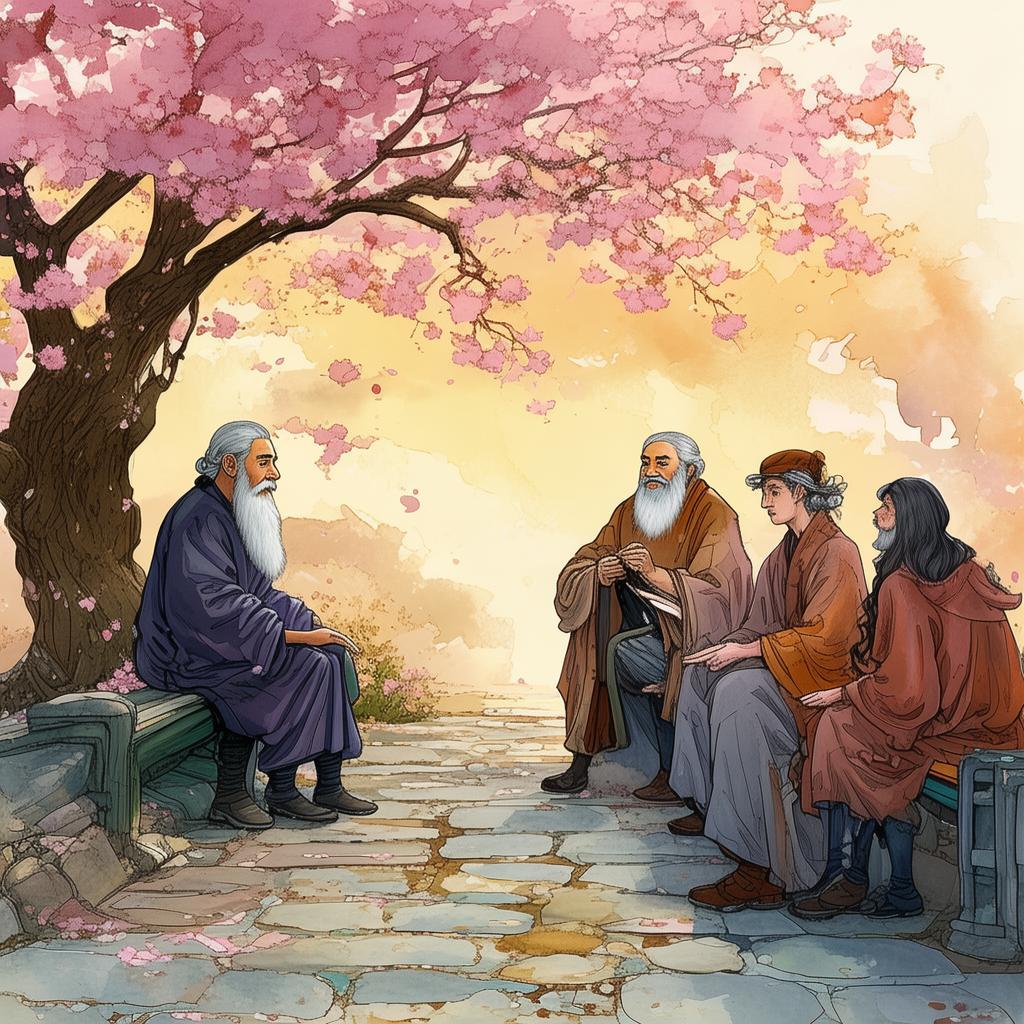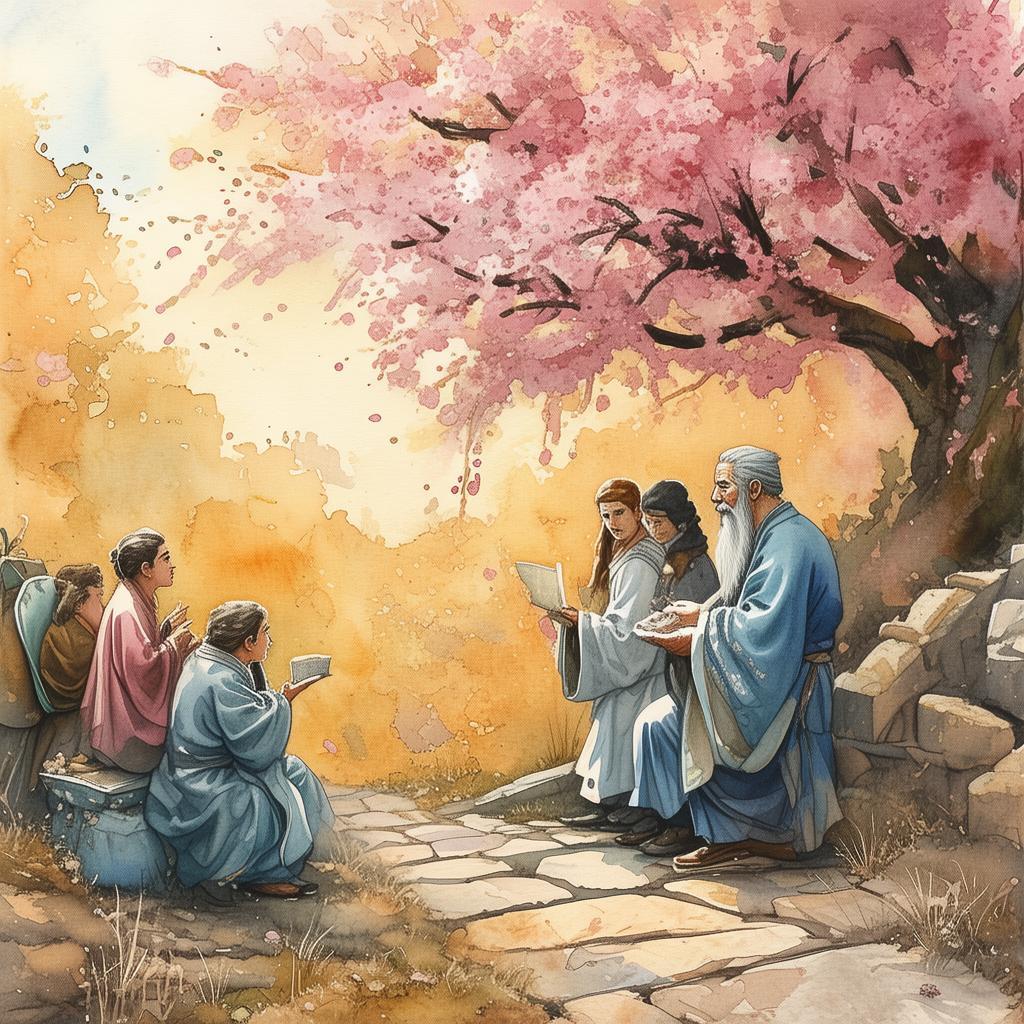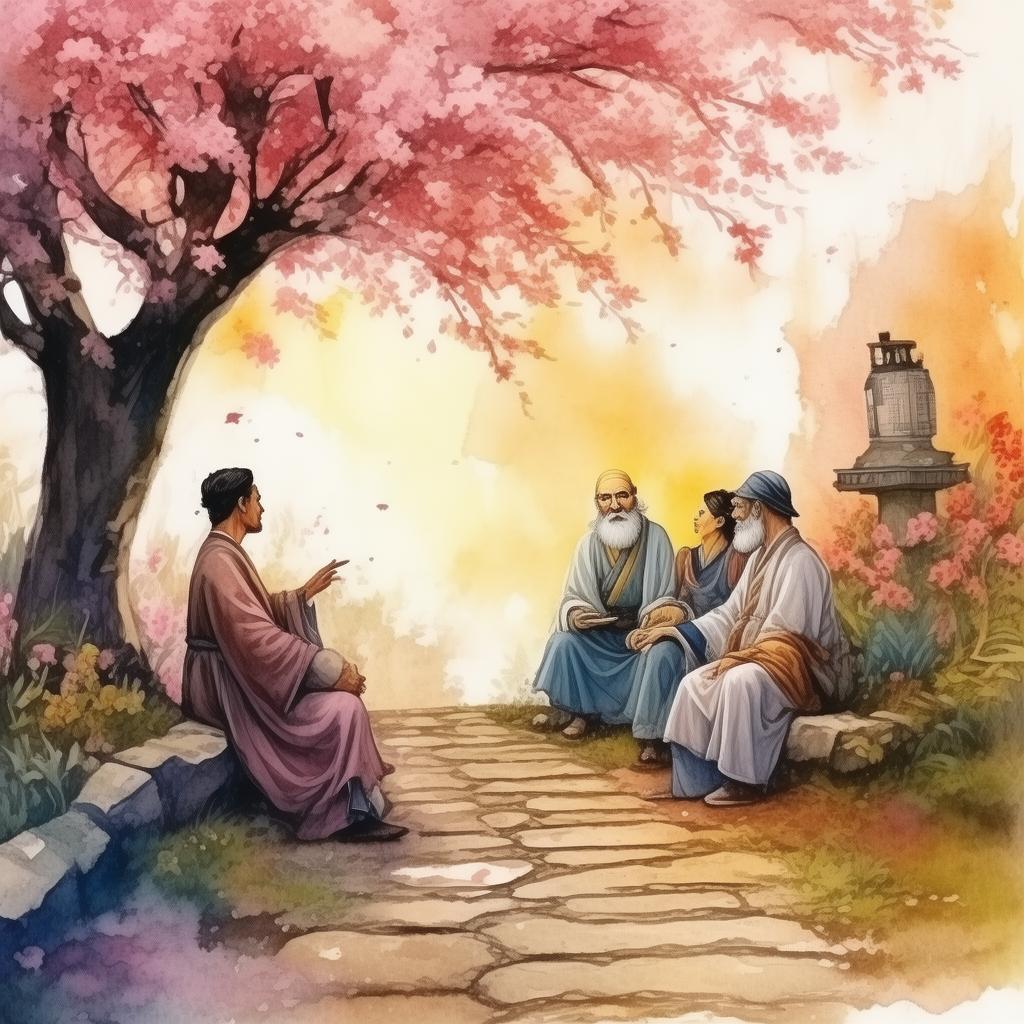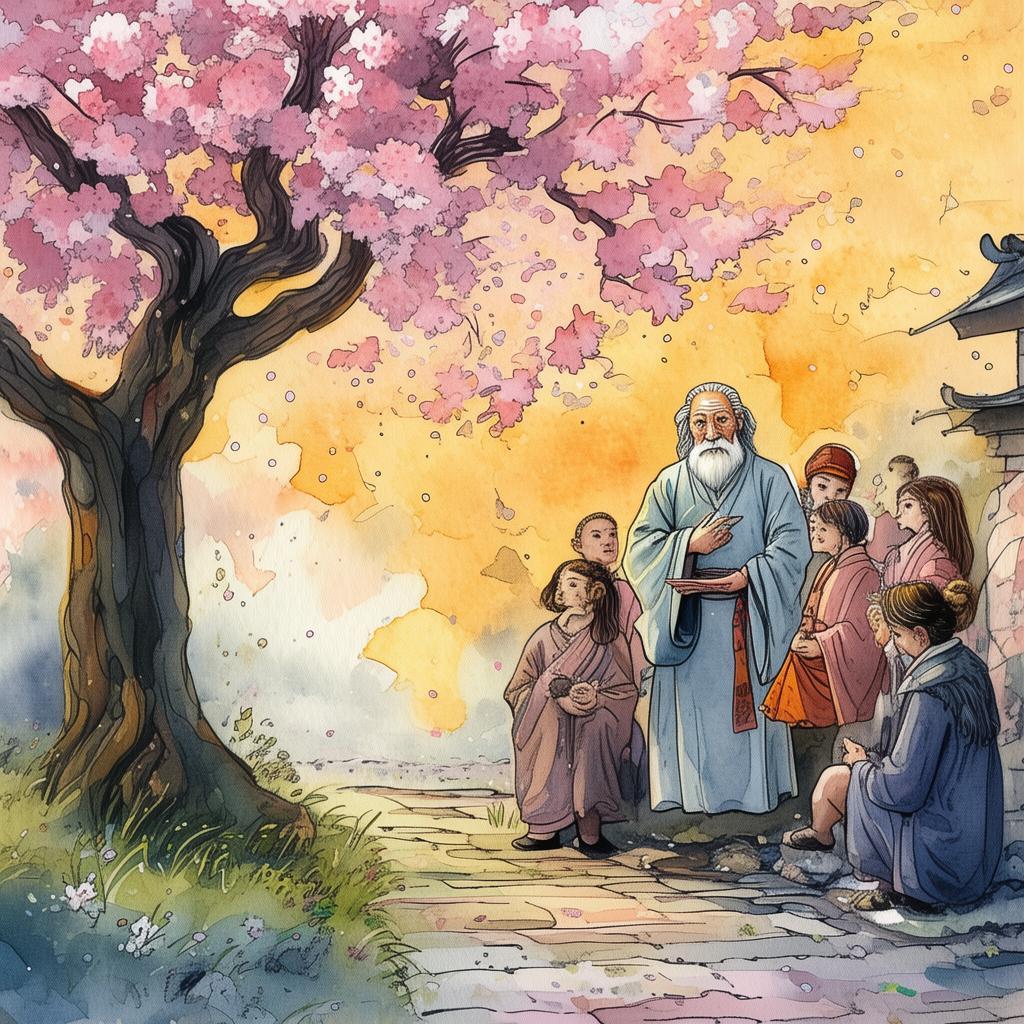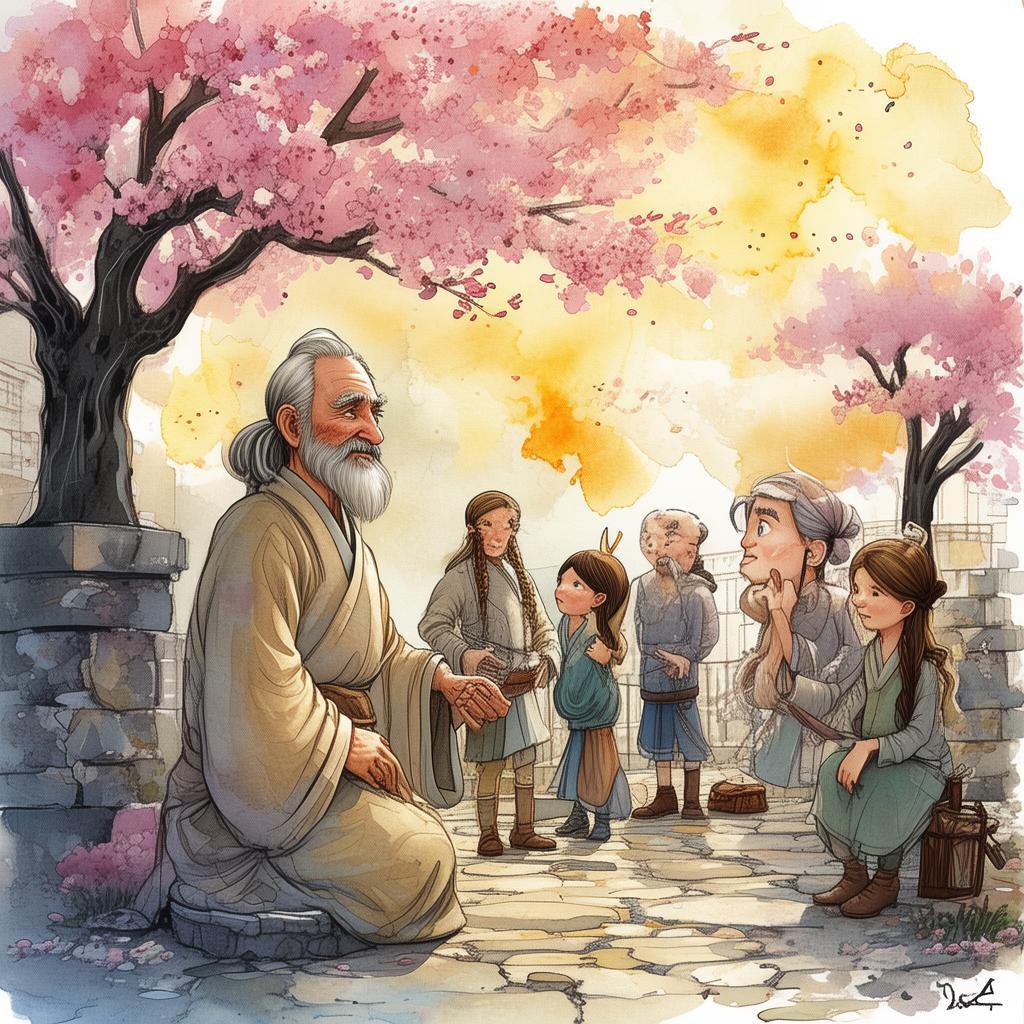The Masked Emperor's Double Edict
In the ancient kingdom of Liang, the Emperor was known for his two-faced nature, a trait that earned him the nickname "The Two-faced Emperor." His subjects spoke of him in hushed tones, fearing the whims of his rule. Yet, none dared to question his authority openly. For beneath his velvet robes and the grandeur of his palace, lay a mind as complex and treacherous as the labyrinthine alleys of the capital.
One day, as the sun climbed into the sky, casting its golden light through the towering windows of the Imperial Palace, the Emperor summoned his advisors. In a voice that carried the weight of the throne, he decreed, "Issue a double edict, one that will bind and one that will unbind, and let the people of Liang question their own loyalty."
The advisors exchanged looks of confusion and concern. A double edict, a decree that contradicted itself, was an act of madness, yet the Emperor's will was law.
The first edict, signed with the golden seal of the throne, declared, "All who speak ill of the Emperor or his rule shall be banished from the kingdom, and their property shall be seized." The advisors nodded, understanding the need to maintain the Emperor's image and to quell any rebellion.
The second edict, also sealed with the same majestic emblem, declared, "All who uphold the Emperor's rule and speak in his favor shall be banished from the kingdom, and their property shall be seized."
The advisors were astounded, and for a moment, they were at a loss for words. Such a contradiction could not be enforced without causing chaos. But the Emperor, with a twinkle in his eye, added, "Let them decide which edict they will follow. If they choose wisely, they will not regret it."
Word of the double edict spread like wildfire through the kingdom. People gathered in markets and fields, discussing the edict and its implications. The loyalists, those who believed in the Emperor's benevolence, were torn between their devotion and the penalty of banishment. The detractors, those who believed the Emperor to be a tyrant, were equally divided. Some feared the consequences of speaking out, while others saw this as an opportunity to stand up for their beliefs.
In the capital, a young man named Ming, a blacksmith by trade, was one of the many caught in this turmoil. Ming had always admired the Emperor for his strength and vision, but he also knew the hardships suffered by the common folk under his rule. When the double edict was read aloud in the village square, Ming found himself at a crossroads.
Ming's friend, Li, a village elder, approached him and said, "Ming, you must decide. If you speak for the Emperor, you could lose everything. But if you speak against him, you could be banished. What will you choose?"
Ming pondered the question. He knew the importance of loyalty, but he also believed in justice and equality. "I must follow my heart," he replied, though he was not sure which heart to follow.
As days turned into weeks, the kingdom was divided. Some adhered to the first edict, others to the second. Whispers of rebellion grew, and the Emperor, from his hidden throne room, watched his subjects with a knowing smile.
Finally, the day of reckoning arrived. Ming stood before the Emperor, his hands bound by chains. The crowd gasped, for Ming had always been a symbol of loyalty and integrity in the village. "I have chosen to follow my heart," Ming declared, his voice steady despite his trembling hands.
The Emperor raised his hand, and Ming felt the weight of the chains lift from his wrists. "Then you have chosen wisely," the Emperor said, his tone calm and measured. "For in the end, it is the heart that decides loyalty, not the law."
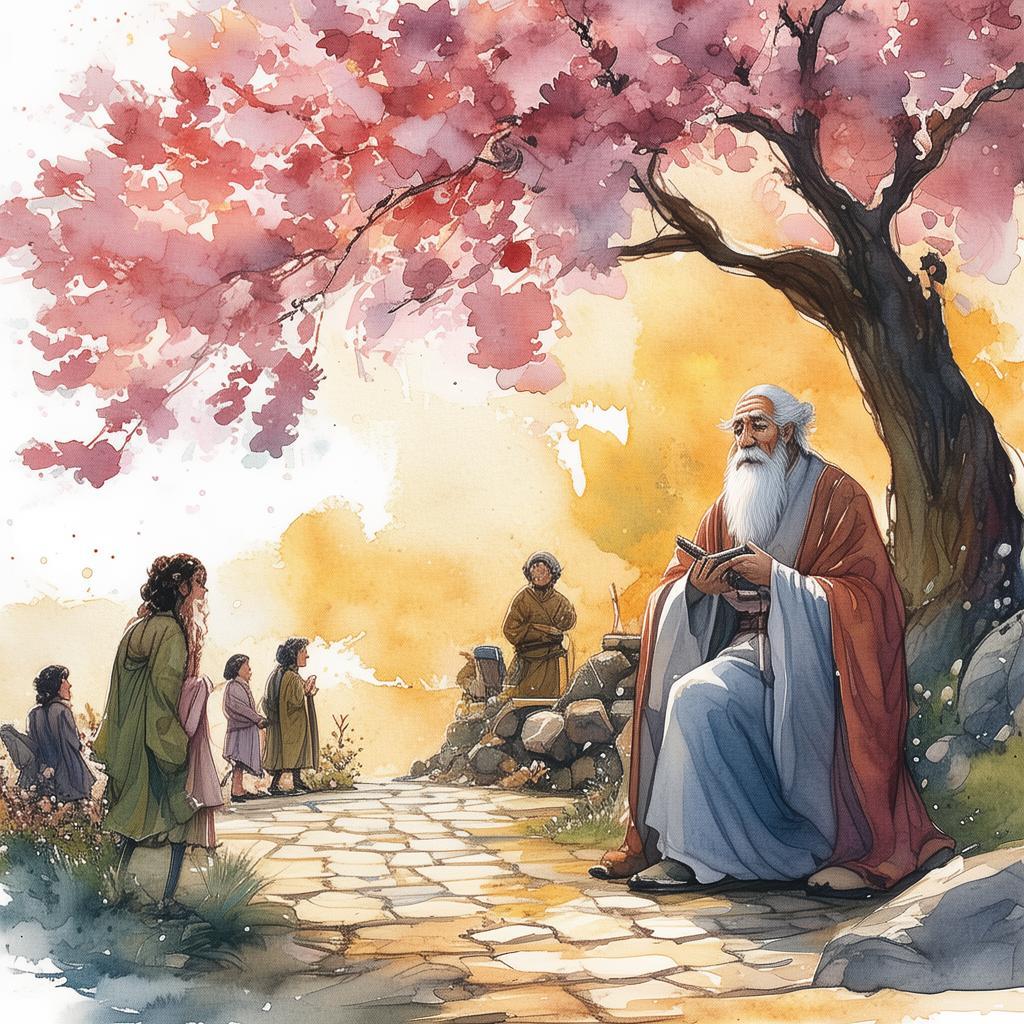
The crowd murmured in awe, for the Emperor's actions had brought them a rare glimpse into his true nature. It was not the law that bound them, but their own hearts.
As the story of the double edict spread through the kingdom, it became a symbol of the Emperor's two-faced nature and the power of individual conviction. Ming, the blacksmith, became a legend, known for his bravery and wisdom. And the Emperor, whose name was once feared and loathed, began to be respected for his cunning and understanding of human nature.
The Masked Emperor's Double Edict would be told for generations, a story of contradiction, rule, and the eternal struggle between loyalty and truth.
✨ Original Statement ✨
All articles published on this website (including but not limited to text, images, videos, and other content) are original or authorized for reposting and are protected by relevant laws. Without the explicit written permission of this website, no individual or organization may copy, modify, repost, or use the content for commercial purposes.
If you need to quote or cooperate, please contact this site for authorization. We reserve the right to pursue legal responsibility for any unauthorized use.
Hereby declared.
